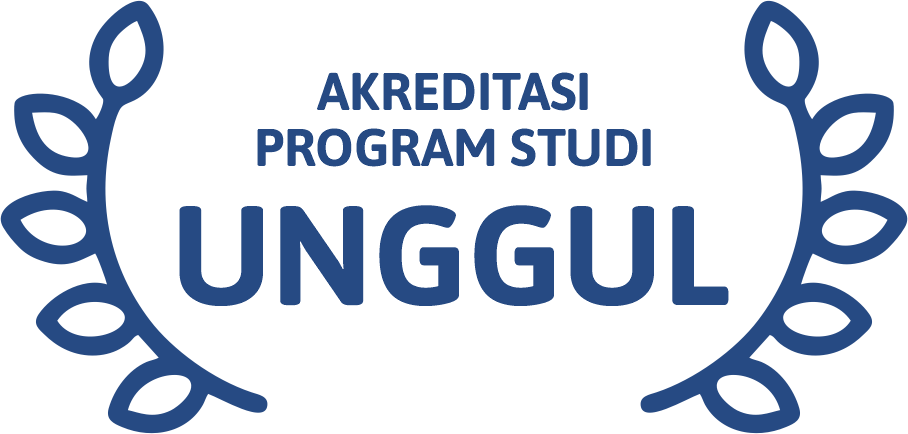Author: M. Syafi’ie, S.H., M.H.
Lecturer in Faculty of Law, Universitas Islam Indonesia, Departement of Constitutional Law
Pertarungan politik sepertinya sedang memasuki masa panas-panasnya. Kampanye terbuka telah dilakukan di beberapa tempat, dan semua orang sedang kasak-kusuk tentang kandidat pilihannya. Di arena persaingan para politisi ini, hadir para agamawan yang biasa membawa dalil-dalil agama untuk mendukung kandidatnya, dan dalam banyak kasus merendahkan kandidat yang lain dengan dasar informasi yang salah.
Di satu daerah, ibu-ibu yang datang dari pengajian tiba-tiba bercerita tentang isi pengajian tokoh agama yang isinya menjelek-jelekkan salah satu kandidat Presiden dan Wakil Presiden, di mana jika kandidat tersebut terpilih PKI akan muncul di mana-mana, pernikahan sejenis akan disahkan, dan suara adzan akan dilarang. Pada saat yang lain, Bapak-bapak yang selesai pengajian cerita bahwa ada kandidat Presiden yang beragama non Islam dan berasal dari keturunan Cina sehingga tidak boleh dipilih. Pada kesempatan yang sama, agamawan tersebut meminta jemaahnya agar memilih kandidat tertentu dengan dasar pikiran yang tidak detail.
Cerita beberapa Jemaah pengajian membuat hati miris karena apa yang dikatakan para tokoh agama sumbernya adalah berita hoax dan tidak dapat dibenarkan secara hukum dan moral untuk disampaikan kepada khalayak umum, khususnya para jemaah pengajian yang notabene hadir dengan kesucian hati dan pikiran untuk mempelajari pesan-pesan agama yang lurus dan mencerahkan. Informasi hoax yang dijadikan sumber ceramah memperlihatkan betapa agamawan bukanlah sosok yang bersih virus berita bohong yang saat ini bertebaran di media sosial, seperti facebook, whatsapp, dan youtube.
Pada sisi yang lain, dukungan politik agamawan pada kandidat tertentu semestinya juga ditopang oleh informasi yang detail dan utuh, utamanya terkait visi misi, tawaran program dan pertimbangan yang bersifat substantif, yakni pentingnya memilih pemimpin yang berintegritas yang harapannya dapat membawa bangsa Indonesia menjadi negara yang berkeadilan, makmur, dan terbebas dari sistem yang koruptif.
Politik Agamawan
Agamawan tidak bisa dipisahkan dari suara agama, apa pun yang dilakukan agamawan, baik perkataan dan tindakannya selalu akan dikaitkan dengan ekspresi keagamaan. Karena itu, mandat penting agar pemeluk agama tidak berprilaku kacau merupakan tanggungjawab utama para agamawan. Ketika terjadi kekacauan di internal pemeluk agama, maka yang harus diperiksa pertama adalah cara pandang dan perilaku para agamawannya yang kita tahu sangat rutin memberikan doktrin keyakinan agama.
Konteks kontestasi politik juga demikian, kisruh pemeluk agama karena adanya perbedaan preferensi politik, yang harus diperiksa pertama adalah cara pandang dan perilaku politik agamawannya. Pertanyaannya, apakah para agamawan sudah memberikan pendidikan politik yang baik dan benar kepada jemaahnya? Atau, yang mereka lakukan adalah menyebarkan politik kebencian dan adu domba yang secara langsung dan tidak langsung akan mendorong disharmoni sosial dan retaknya relasi bernegara kedepannya.
Disinilah letak penting mengapa para agamawan harus memiliki pengetahuan dan pemahaman politik yang paripurna, di mana ada keniscayaan agar mereka secara utuh memahami ajaran agama dalam konteks hubungan sosial masyarakat (muamalah), bernegara (siyasah), dan dalam hal bagaimana agama semestinya menjadi penguat persaudaraan antar manusia (ukhuwah insaniyah/basyariah) dan persaudaraan sebangsa (ukhuwah wathaniyah). Dalam hal ini, agamawan dituntut tidak hanya ahli dalam hal ceramah dan pengetahuan agama yang bersifat ritual, tetapi lebih jauh memahami ajaran agama secara holistik.
Politik agamawan dengan demikian tidak bisa dimaknai secara sempit sekedar dukung mendukung, atau sekedar mengeluarkan dalil-dalil agama untuk mendukung kandidat tertentu, lebih jauh para agamawan punya tanggungjawab agar berpolitik sesuai dengan tuntunan agama yang luhur, terhormat, dan mulia. Saat politik luhur ini dijalankan, maka ajaran agama tetap akan berada di posisinya yang suci, dan para pemeluk agama akan memahami kontestasi politik bukan lagi sebagai ruang permusuhan dan perang antar sesama anak bangsa, tetapi lebih substantif menjadi ruang untuk secara sungguh-sungguh mencari pemimpin yang berkualitas.
Tantangan
Menghadirkan perilaku politik agamawan yang luhur tentu tidaklah mudah, mengingat ada begitu banyak tantangan di negari ini, utamanya terjadinya tarik menarik yang terus menerus antara politik dan agama, dan para agamawan pada sisi yang lain. Agamawan yang mejadi bagian kekuasaan biasanya akan selalu membela perilaku kekuuasaan, sebaliknya agamawan yang berada di luar kekuasaan umumnya akan mengkritik kekuasaan.
Di tengah tarik menarik tersebut, agamawan dimana pun posisinya idealnya dituntut untuk menjadi manusia yang harapannya dapat melampaui kepentingan diri sendiri, kelompok dan menghindari pertarungan politik yang bersifat sesaat. Agamawan dituntut untuk lebih mengamalkan pesan-pesan agung agama yang suci dengan selalu mendorong kebaikan dan kebajikan di tengah-tengah umat manusia yang beragam.
This article have been publsihed in Jawa Pos Newspaper, 28 March 2019.


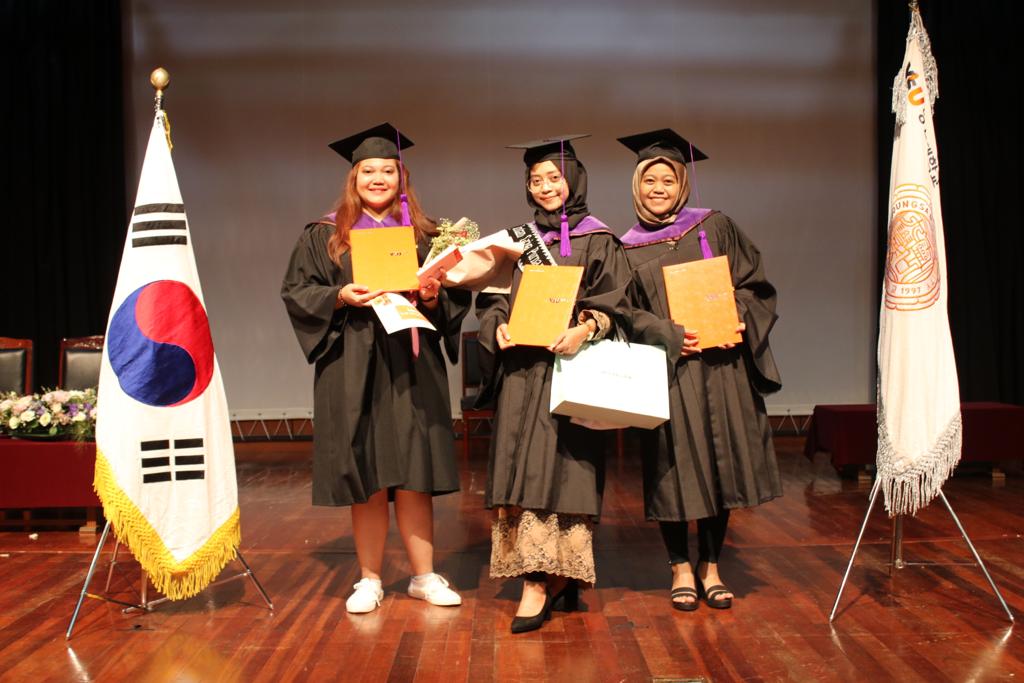
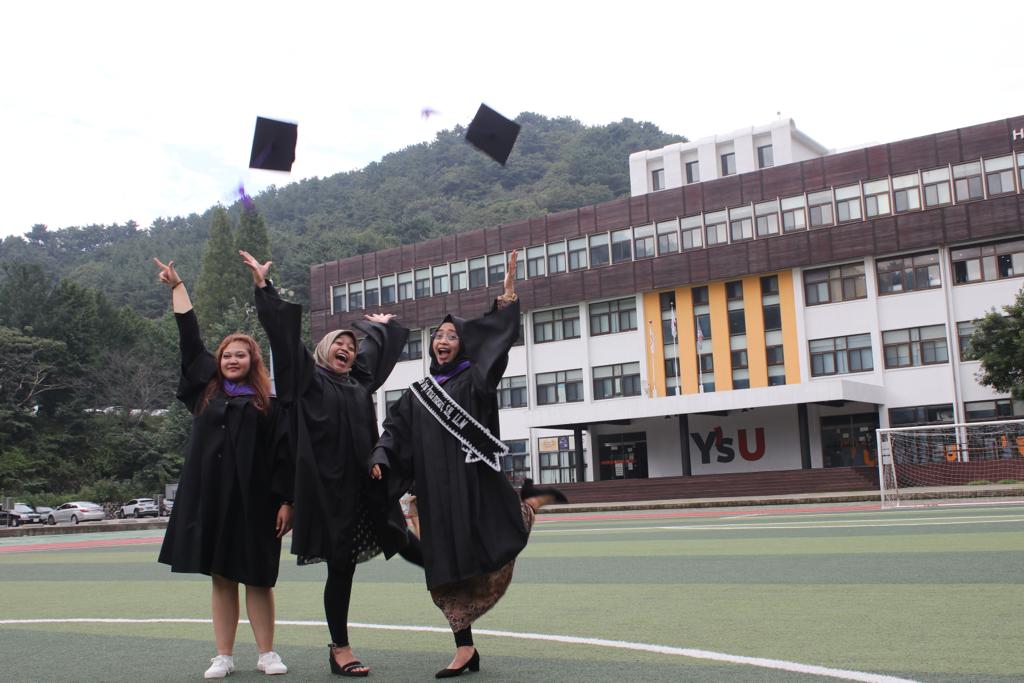 Among the graduates were foreign students from outside South Korea such as Indonesia, Vietnam, Cambodia, China and several other countries. Among the graduates from Indonesia, there were 3 double degree students in the jurisprudence of the Islamic University of Indonesia batch 3. The three UII students were Dhita Rahma Yanuari (Student Number: 17912009), Rahayu Saraswati Herlambang (Student Number: 17912024), and Intan Griya Purnamasari (Student Number: 17912009), successfully completed his studies at Youngsan University and earned an LLM degree with cum laude with a perfect GPA of 4.50.
Among the graduates were foreign students from outside South Korea such as Indonesia, Vietnam, Cambodia, China and several other countries. Among the graduates from Indonesia, there were 3 double degree students in the jurisprudence of the Islamic University of Indonesia batch 3. The three UII students were Dhita Rahma Yanuari (Student Number: 17912009), Rahayu Saraswati Herlambang (Student Number: 17912024), and Intan Griya Purnamasari (Student Number: 17912009), successfully completed his studies at Youngsan University and earned an LLM degree with cum laude with a perfect GPA of 4.50.
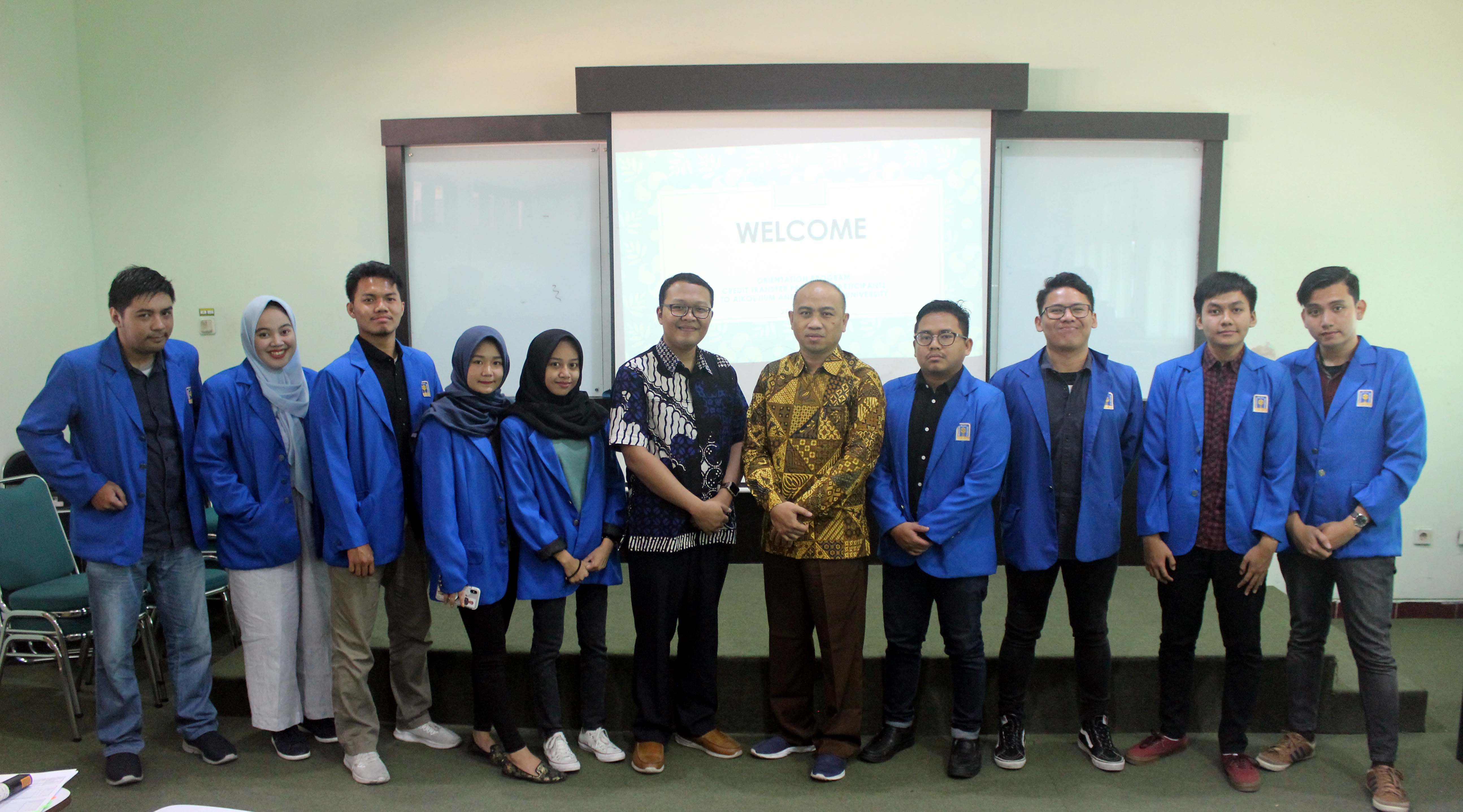

 In this Summer School program, Pradana Satya attended lectures for 2 weeks, in which there were 2 material distributions namely in the first week learning about Alternative Dispute Resolution in which there was learning about Negotiation, Mediation, Litigation and Arbitration. In this first week’s lecture, the lecturer was Professor Cynthia M. Adams. Professor Cynthia M. Adams is a lecturer at Indiana University’s Robert H. McKinney School of Law and also a practitioner in her field. Then, in the second week’s lecture material delivered by a Chief Justice at the Indiana Supreme Court at the United State of America namely Justice Steven H. David. In the second week, the material presented was regarding Contract Law in the American Law system and also the application of contracts in international business law. Every weekend, a final test will be held to test the ability of students and also one of the requirements to get a certificate of graduation from the Summer School so that every student must be able to pass the final test.
In this Summer School program, Pradana Satya attended lectures for 2 weeks, in which there were 2 material distributions namely in the first week learning about Alternative Dispute Resolution in which there was learning about Negotiation, Mediation, Litigation and Arbitration. In this first week’s lecture, the lecturer was Professor Cynthia M. Adams. Professor Cynthia M. Adams is a lecturer at Indiana University’s Robert H. McKinney School of Law and also a practitioner in her field. Then, in the second week’s lecture material delivered by a Chief Justice at the Indiana Supreme Court at the United State of America namely Justice Steven H. David. In the second week, the material presented was regarding Contract Law in the American Law system and also the application of contracts in international business law. Every weekend, a final test will be held to test the ability of students and also one of the requirements to get a certificate of graduation from the Summer School so that every student must be able to pass the final test.
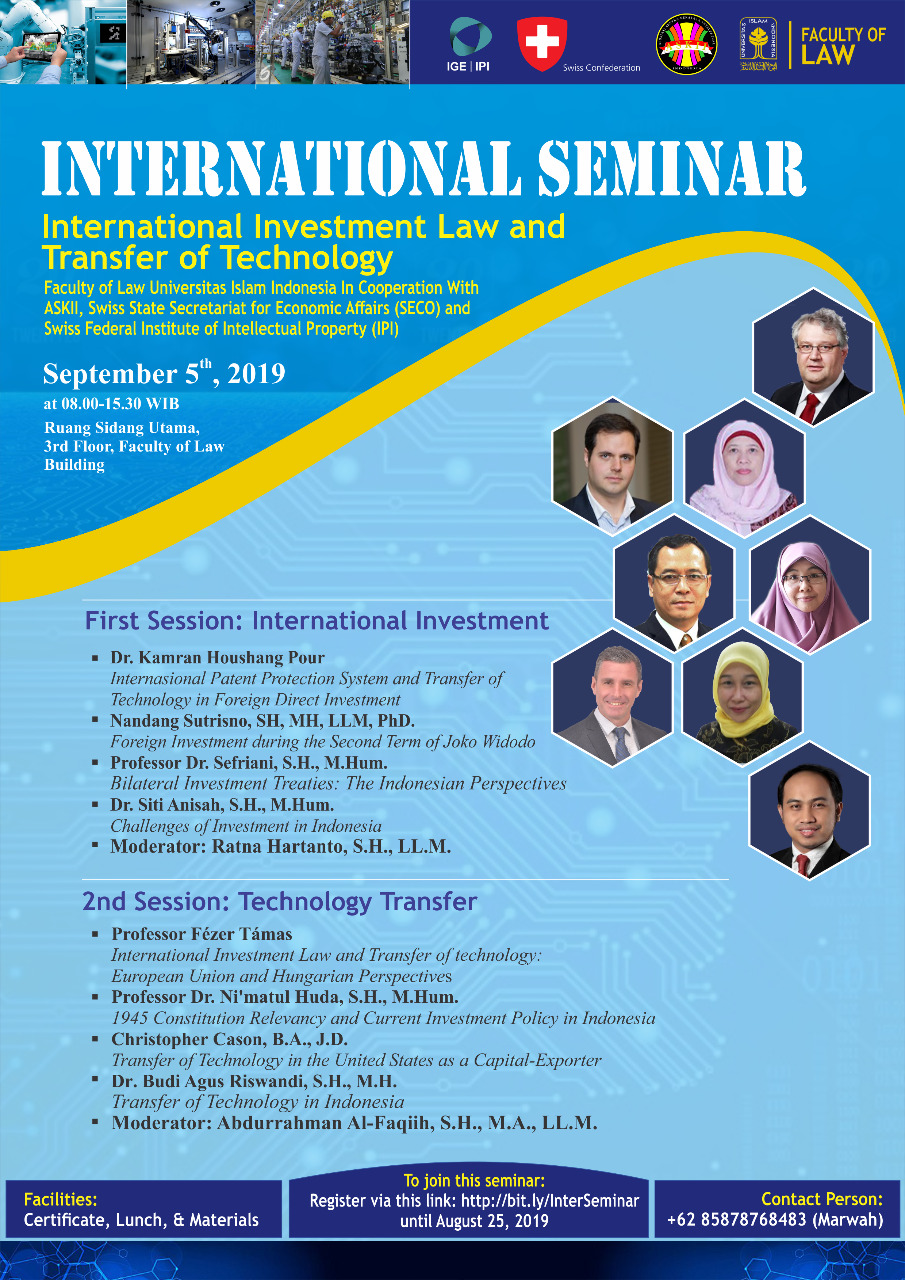

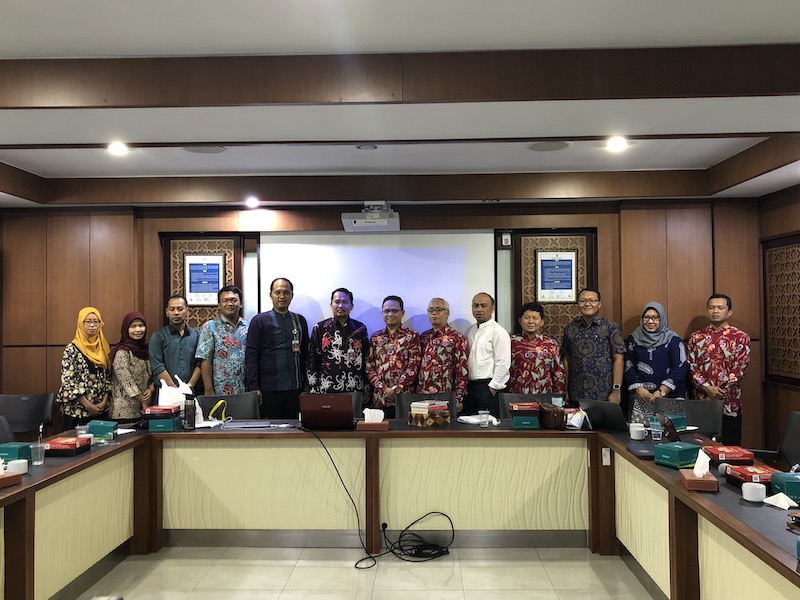
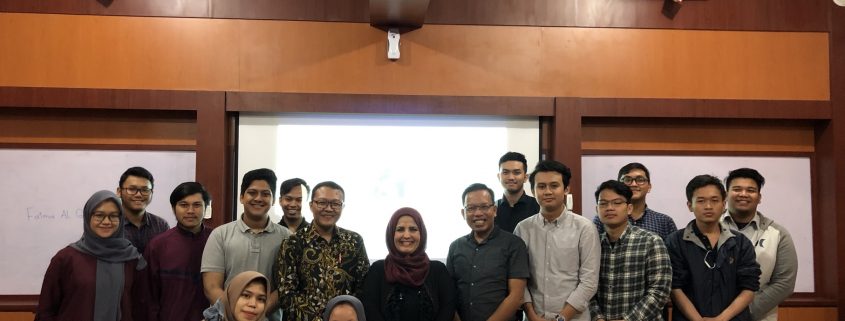
 People with disabilities (PwDs) and special needs have been disproportionately affected by the deterioration in living conditions in the Gaza Strip since March 2017. This situation is driven by a worsening energy crisis, which has resulted in outages of 18-20 hours a day, and an exacerbation of the salary crisis in the public sector, both of which are linked to an escalation in internal Palestinian divisions. The Palestinian Ministry of Social Development estimates that over 49,000 individuals in the Gaza Strip (or 2.4 per cent of the population) suffer from some type of disability, a third of them children. More than 1,100 of these people, including about 300 children, became disabled as a result of injuries incurred during the 2014 hostilities, including approximately 100 amputees.
People with disabilities (PwDs) and special needs have been disproportionately affected by the deterioration in living conditions in the Gaza Strip since March 2017. This situation is driven by a worsening energy crisis, which has resulted in outages of 18-20 hours a day, and an exacerbation of the salary crisis in the public sector, both of which are linked to an escalation in internal Palestinian divisions. The Palestinian Ministry of Social Development estimates that over 49,000 individuals in the Gaza Strip (or 2.4 per cent of the population) suffer from some type of disability, a third of them children. More than 1,100 of these people, including about 300 children, became disabled as a result of injuries incurred during the 2014 hostilities, including approximately 100 amputees.
